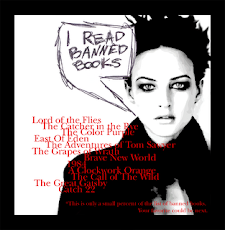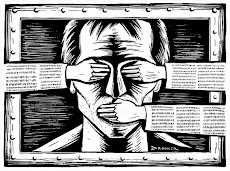Extract:
... She didn't need any goddamn skell to buy her a drink. She could get anything she wanted in Willies. She had her kicks. Shed go back to Willies where what she said goes. That was the joint. There was always somebody in there with money. No bums like these cruds. Did they think shed let any goddamn bum in her pants and play with her tits for a few bucks. Shit! She could get a seamans whole payoff just sittin in Willies. ...
•
... Afterwards the kids who were watching and waiting to take a turn took out their disappointment on Tralala and tore her clothes to small scraps put out a few cigarettes on her nipples pissed on her jerked off on her jammed a broomstick up her snatch then bored they left her lying amongst the broken bottles rusty cans and rubble of the lot and Jack and Fred and Ruthy and Annie stumbled into a cab still laughing and they leaned toward the window as they passed the lot and got a good look at Tralala lying naked covered with blood urine and semen and a small blot forming on the seat between her legs as blood seeped from her crotch and Ruth and Annie happy and completely relaxed now that they were on their way downtown. ...
– Hubert Selby, Jr. Last Exit to Brooklyn. 1964 (London: Abacus, 1989): 111 & 122.
Critical Responses:
"What Moby Dick was to Melville's century, Last Exit to Brooklyn is to ours, and between the two, Selby's is the better book. If that be called heresy, know that it be called so only by those of the same dead mind as they who allowed Melville to die unknown." - Nick Tosches.
"Being an artist doesn't take much, just everything you got. Which means, of course, that as the process is giving you life, it is also bringing you closer to death. But it's no big deal. They are one and the same and cannot be avoided or denied. So when I totally embrace this process, this life/death, and abandon myself to it, I transcend all this meaningless gibberish and hang out with the gods. It seems to me that that is worth the price of admission" - Hubert Selby, Jr.
 Last Exit to Brooklyn (1989)
Last Exit to Brooklyn (1989)directed by Uli Edel
screenplay by Desmond Nakano
starring starred Stephen Lang, Jennifer Jason Leigh, Burt Young & Peter Dobson
Critical Responses:
"It's funny how things get twisted around in very small yet meaningful ways. One certainly has to question all history books. After I had written and directed Heavy Traffic, I had gotten together with Selby and producer Steve Krantz to do a live action version of Last Exit because Traffic made it clear to everyone that I could do it. Hubert Selby and I became very good friends. Bobby DeNiro had accepted a major roll in the film (Strike) but the whole thing fell apart when Krantz and I had a falling out over past business. It was a disappointment to me and Selby. Selby and I tried a few other screenplays after that on other subjects, but I could not shake Last Exit from my mind. Years later, It was done horribly.
If you live in Brooklyn, people could be outrageous, but also very wonderful, colorful, unique. The picture turned out to be like a hot dog without mustard." - Ralph Bakshi.




1 comment:
Selby's book was with me the entire time during the production of "Saturday Night Fever". It influenced script revisions, improvisations,discussions with the cinematographer, discussions with John Travolta, and in volatile production meetings where fear began to crop up regarding profanity, the gang rape sequence, and death on the Verrazano bridge. The book was my personal secret talisman to ward off these attempts at evil Hollywood compromise towards the darkest aspects of our story. Many years later, I was approached to take a major role in the 1989 film. I knew to stay far away, as I did not trust the people involved to do the book justice. I also never knew Selby was from Bay Ridge. I am thrilled to this day whenever I see "Last Exit" mentioned in regard to "Fever" in retrospective critical writing on the "golden age" of 1970's American Cinema, when commercial mainstream Hollywood films were "unprecedented in their realism and daring." Barry Miller, "Bobby C."
Post a Comment